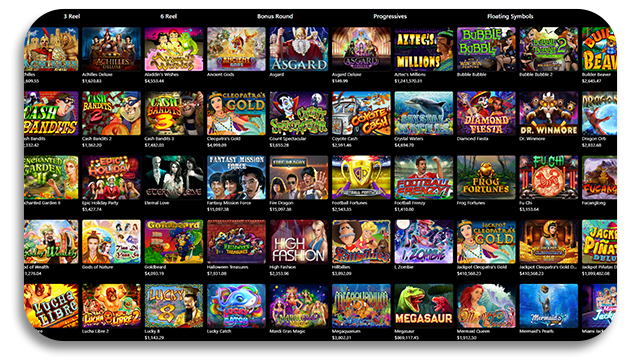Pennsylvania Reopens Bidding Process for iGaming Licenses

- The Pennsylvania Gaming Control Board has begun accepting petitions from companies primarily operating outside Pennsylvania who wish to apply for an iGaming certificate without being tied to a land-based casino.
- According to the PGCB, there are 12 remaining certificates available in three categories.
- iGaming certificates for these Qualified Gaming Entities can cost up to $12 million versus only $1 million for those partnered with the state’s brick-and-mortar casinos.
The Pennsylvania Gaming Control Board will start accepting petitions for an operator who wishes to apply for an iGaming certificate without being tied to a Keystone state casino.
The Pennsylvania Gaming Control Board is now accepting petitions from casino operators to become Qualified Gaming Entities in the Keystone state, with 12 remaining certificates on offer. https://t.co/VAefxudZ4z
— CasinoBeats (@casinobeatsnews) December 28, 2022
The petition period to obtain one of the permits from the Board begins today January 3, 2023, and ends on March 3, 2023.
According to the PGCB, they will begin accepting petitions from casino operators that are “primarily operating in jurisdictions outside Pennsylvania but who wish to receive a certification as Qualified Gaming Entity.
12 Remaining Certificates
As stated by the board, there are 12 remaining certificates that are up for grabs, with each costing $4 million. The certificates are available in three categories: 3 certificates for games that simulate slot machines, 3 certificates for bank table games that simulate casino table games played versus the house, and 6 certificates for non-bank table games, usually poker.
This marks the second time that the Pennsylvania Gaming Control Board has iGaming certificates have been made available to operators without a presence in the state. The first one occurred in February 2018 when Golden Nugget’s iGaming platform was the sole applicant. That application, however, is still “under process” with the board not saying the reason for the delay in the issuance of its certificate.
The idea of a Qualified Gaming Entity was the product of the Pennsylvania Gaming Expansion act of 2017. According to Act 42, the state of Pennsylvania’s 13 Category 1, 2, and 3 slot machine licensees had the first crack to get the total of 39 iGaming certificates. (13 certificates in each of the 3 categories ).
Qualified Gaming Entities
Most of the iGaming websites in Pennsylvania are operated by the Commonwealth’s brick-and-mortar casinos or online gaming operators who partnered with those casinos to gain market access. On the other hand, Qualified Gaming Entities can obtain access to the Pennsylvania iGaming market without any partnership.
The only problem with a Qualified Gaming Entity license is that it comes at a steep price. While the gaming license to operate online slots, tables, and poker of land-based casinos and operators tethered to them cost just $1 million, these independent Qualified Gaming Entities pay up to $12 million to get access.
All types of iGaming licenses in Pennsylvania are renewable every five years at a cost of $100,000. Gross gaming revenue from online slots is levied a 54% tax rate while online table games and online poker are subject to a 16% tax.
iGaming a Big Revenue Generator for the State
While the tax on operators is quite high in Pennsylvania, it has resulted in massive tax revenues for the state. For the 2021/22 Fiscal Year, iGaming in Pennsylvania generated $1.23 billion worth of gross gaming revenue. That translated to a tax of roughly $341.7 million.
Online slots comprised the bulk of that amount at a gross gaming revenue of $847.4 million while revenue from interactive table games amounted to $349.6 million. On the other hand, fees from online poker reached $35.2 million for the period July 1, 2021, to June 30, 2022.
Online slot revenue increased by 40.5% versus the previous year while table games spiked by 33% against last year’s numbers. Meanwhile, Poker income rose by 15% on a year-over-year comparison.
Last month, the PGCB reported that online casino revenue hit a record for the second straight month. The Keystone State set a monthly iGaming revenue record of $450.2 million in October 2022. That figure topped November 2022’s $452.4 million or a 6% increase.
More casino News

In 2023, Maryland Senator Ron Watson introduced SB267 in an attempt to legalize online casinos in the state. The effort failed to move forward, and Watson is back at it...
read more
By March 1st, 2024 online casino gaming will be live in a seventh US state. Rhode Island is ready to start offering services in two months, with the state’s only...
read more
Online sports betting is coming soon to North Carolina, with regulators setting up the industry as we speak. It is expected that services will start no later than June 2024....
read moreFrom The casino Blog
The best blackjack casinos go to great lengths to draw in players. Many mega-casinos resemble more of a resort atmosphere than a casino, which is what the casinos are after....
read more
Casino games are a lot of fun, but sometimes you need a break from normal card games and slot machines. One of the best ways to shake things up is...
read more
States that don’t allow gambling are dwindling as the gambling movement is gaining traction across much of the United States. However, many states are still working on legislation to allow...
read more
